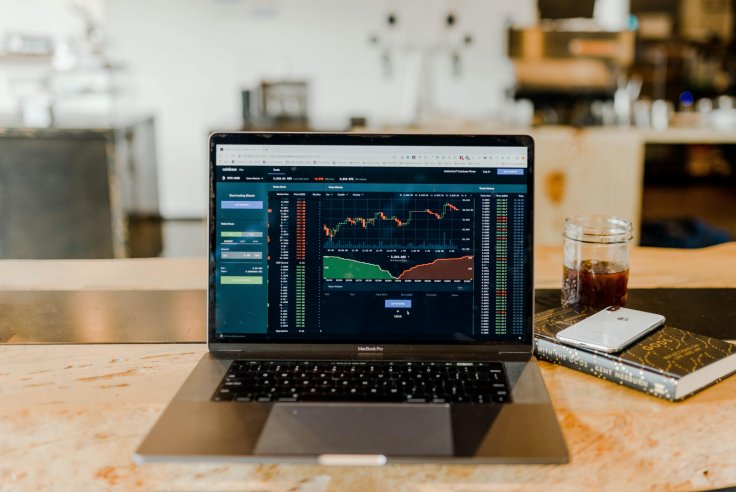
Kane Kalas has been a full-time securities and digital assets investor for years. Kane Kalas is the owner and managing principal of Crystal Oak Capital, a hedge fund he launched in 2020, in the early months of the COVID-19 pandemic. Given the timeliness of Kalas' transition from personal money management to corporate money management and his success since we asked for his opinions on how market conditions have changed in the post-pandemic world.
The Renaissance of Global Macro Funds
Global macro funds seek out structural trades that pinpoint and exploit recurrent patterns driven by investor flows on a repeating basis. Global macro funds had been progressively falling out of favor among investors for some time, however, these funds saw major capital inflows in 2020. Historically low-interest rates globally, coupled with the erosion of central bank independence in many economies within the developed market, have created conditions in which global macro strategies can thrive.
Furthermore, Kalas points out that global macro funds have a flexible nature, which could provide investors protection in an environment of rising interest rates. While the United States Federal Reserve has announced no definitive plan for a rate hike, Kalas believes that rising interest rates should be anticipated in the years to come. He argues that rising rates will soon be necessary to curtail an inevitable wave of inflation emanating from monetary policy that has been too loose for too long.
Global macro funds tend to seek out medium-term trades, sometimes including investments in currencies, precious metals, or commodities. This is something that Kalas avoids, as he believes that all fiat currencies are — and will continue to be — inflationary. Politicians, he argues, exert influence over central banks, creating inflation because it is politically expedient; they can purchase votes by increasing government spending in the way of popular programs while simultaneously cutting taxes. Many governments create inflation as a means of maintaining low unemployment. When a currency inflates and wages remain fixed, the result is that the labor is cheaper. There is high global demand for cheap labor.
Historically, investors who are concerned about inflation turn to gold to provide their portfolio with protection, but Kalas says that is also a mistake. Kalas has not owned gold since 2012, due to his belief that blockchain technology could render the precious metal useless as a store of value.
Commodities trading is a broad category and, as such, Kalas was hesitant to speak to the efficacy of commodities trading in general. He did, however, say that those, like him, who are concerned about inflation, should consider that US stocks have historically outperformed both precious metals and commodities during periods of high inflation.
What About Fixed Income Investing?
Kalas does not believe that now is the right time to be investing in fixed income strategies. Due to the present environment of historically low-interest rates, bank saving accounts, bonds – both corporate and government, and annuities all offer very low yields. As a result, investors worldwide are keeping less of their savings in bonds, moving capital instead to stocks, which are riskier but also offer significantly higher expected returns. Even Warren Buffet, who has long advocated for the bifurcation of a portfolio into both stocks and bonds has recently changed course, claiming that the value proposition for bonds is no longer an attractive one.
"You want to be on the other side of the fixed income trade," said Kalas. "If you have been wanting to own your own home, go into a bank and get a fixed rate mortgage at these historically favourable rates. Now is the time."
The Benefits of Quant Investing In the Post-Covid World
A quant strategy is one in which mathematical algorithms are used to analyze historical trends between multitudinous variables and the performance of an asset. Kalas considers himself a quant investor and utilizes quant strategies in both of his funds: Crystal Oak Partners and Crystal Oak Digital Assets.
The best performing hedge funds in recent years have been quant funds. Kalas ascribes this trend to the recent data boom. The availability of financial data has increased dramatically and the data has become much easier to process and analyze due to rapid improvements in computer software. According to Kalas, as time goes on, data will play an increasingly larger role in the financial services industry, and, one day, most investing and trading decisions will likely be made by computers.
While most quant traders execute primarily short-term trades, Kalas takes a more nuanced approach. He uses mathematical modelling to identify short, medium, and long-term investment trends. Crystal Oak Partners implements a long-short quant strategy in which the fund's long positions are mostly medium to long-term holds, while the fund's short positions are trades lasting hours or possibly a few days.
Kalas puts more trust in statistically significant correlations than in value investing "rules" or adages. "As time goes on," he explains, "computer models will be able to inform humans about things we were right about and things we were wrong about. There will be some who listen to these data-based conclusions and some who stubbornly protest, putting their faith instead in the knowledge of the past. My philosophy? Trust data."








